A decade of action on poverty
Where did the 2010s go? Whoosh, just like that, another whole new decade is upon us.
Ten years lie ahead like blank canvases or unfilled journals. 3,653 days that we can shape, use and hopefully enjoy.
We know our priorities as we begin the decade, but only time will tell what new issues, challenges and opportunities arise as we continue trying to loosen poverty’s grip. Before the 2020s gather pace, however, allow us to pause, and briefly look back at some of the work you helped to fund, enable and support in the 2010s. Thank you!
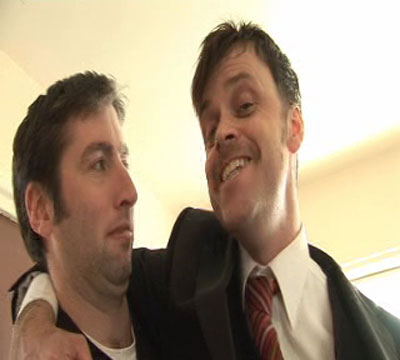
We began with a pleasing result from some of our earlier work. The Methodist Church and the Church of Scotland committed to support the Living Wage, helping ensure that people’s incomes are enough for them to live on.
Our ‘Rip-off TV’ action (pictured) persuaded the chief executive of a high-cost lender to sit down with his customers, listen to them, and join them in working for more responsible practices in the sector. Many aspects of our economy exacerbate poverty, charging poor people more for goods and services. We challenge this wherever we can.
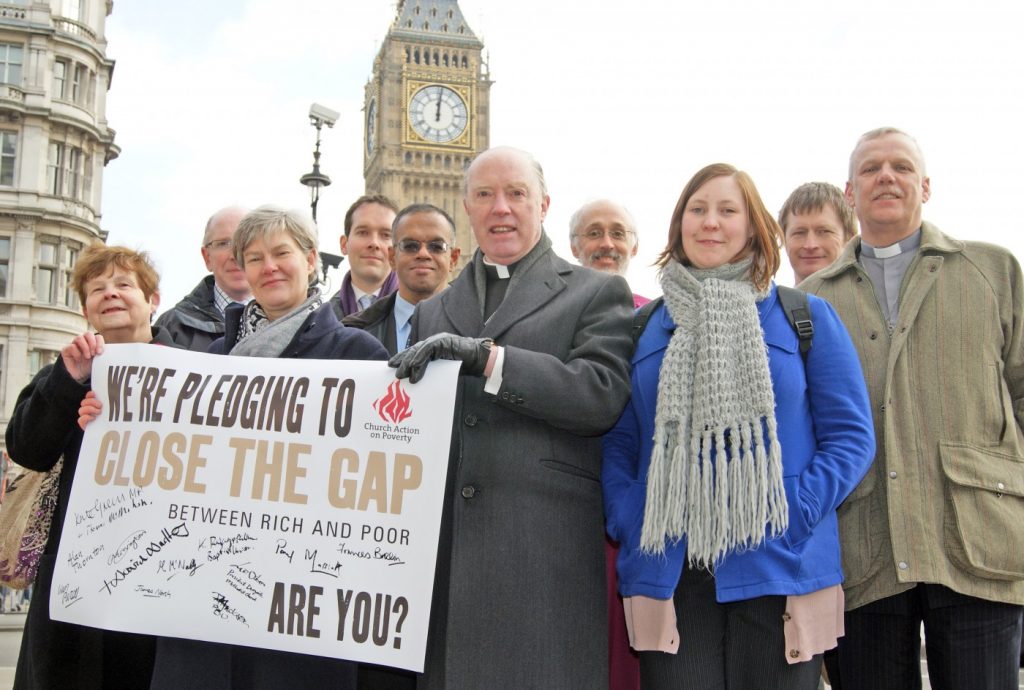
Our Close The Gap campaign was launched, and thousands of you got involved, Giving, Acting and Praying to tackle inequality. We focused on fair taxes, fair prices and a fair say.
Working with partners near our own offices, our Salford Apprentice programme supported local people with experience of poverty to become community leaders. Those involved have since launched and spearheaded fascinating and powerful work of their own.
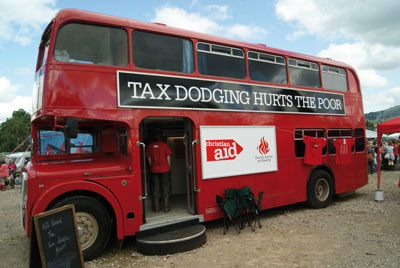
We and Christian Aid took a double-decker Tax Justice Bus around the UK, mobilising people to campaign against tax dodging.
There was more good news on the Living Wage, with support from the General Synod of the Church of England and the Catholic Bishops’ Conference.
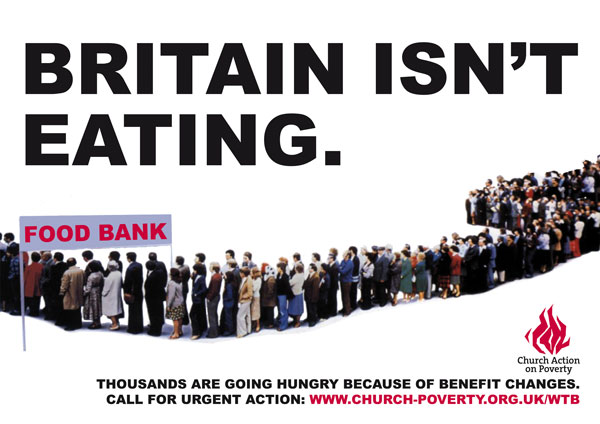
We knew hunger was a growing issue in the UK, but it had been hard to quantify. Working with Oxfam, our joint Walking The Breadline research made front-page news as a pioneering and vital look at the full picture. Only by fully understanding such issues can we ensure we tackle the root causes effectively.
That Christmas, our “Britain Isn’t Eating” poster struck a chord across the country and went viral online.
We undertook a fascinating visit to India, which led to the creation of our Self-Reliant Groups project, small groups that can save and invest together, and provide mutual support.
We published the Charter to End the Payday Loan Rip-off in partnership with the Centre for Responsible Credit and Paul Blomfield MP. More than 40 MPs signed up to the Charter at the launch event in the House of Commons. This helped persuade the Financial Conduct Authority to crack down on payday lending and bring in new regulations, which led to Wonga and others paying more than £50m redress to customers.
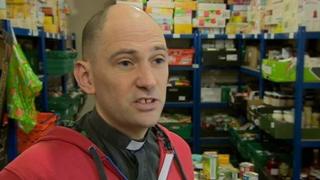
The food focus continued. We began building partnerships among churches, charities, academics and others, to build an alliance that could explain, challenge and ultimately end food poverty. These were the foundations of the End Hunger campaign.
Many church leaders have embraced the campaign, and that year we worked with vicar Keith Hebden (pictured), as he fasted for the whole of Lent to raise awareness of the crisis.
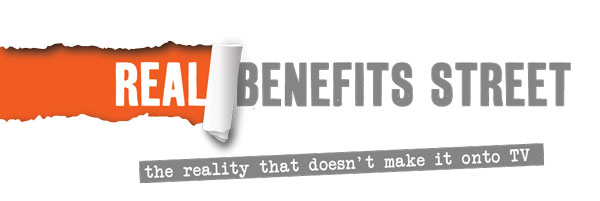
We worked with the Joint Public Issues team on the Rethink Benefit Sanctions campaign. Sanctioning, which often tipped people into destitution, has since reduced and has been proven to be damaging.
Our Real Benefits Street project provided a true and balanced alternative to the sensationalist TV coverage, persuading one TV producer to meet our participants and listen to their concerns about stigma and inaccuracy.
We listened to churches around the UK, so their visions of what makes a Good Society could influence our planning.
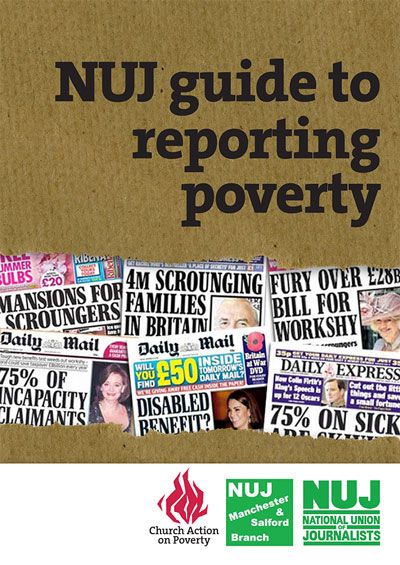
We worked with the National Union of Journalists to produce new reporting guidelines, launched the End Hunger UK campaign, and launched our Church on The Margins work, exploring the challenge by Pope Francis and others to build a ‘poor church that is for the poor’.

Having researched ways for communities to tackle the Poverty Premium in their neighbourhood, we launched the Your Local Pantry network nationally. Pantries alleviate poverty by reducing shopping bills, allowing other essential costs to be met. Research has shown they are having a fantastic social, economic and health impact.
Our Voices From The Margins project, putting people with experience of poverty at the forefront of social and political conversations, was launched. More than 120 people have contributed so far.
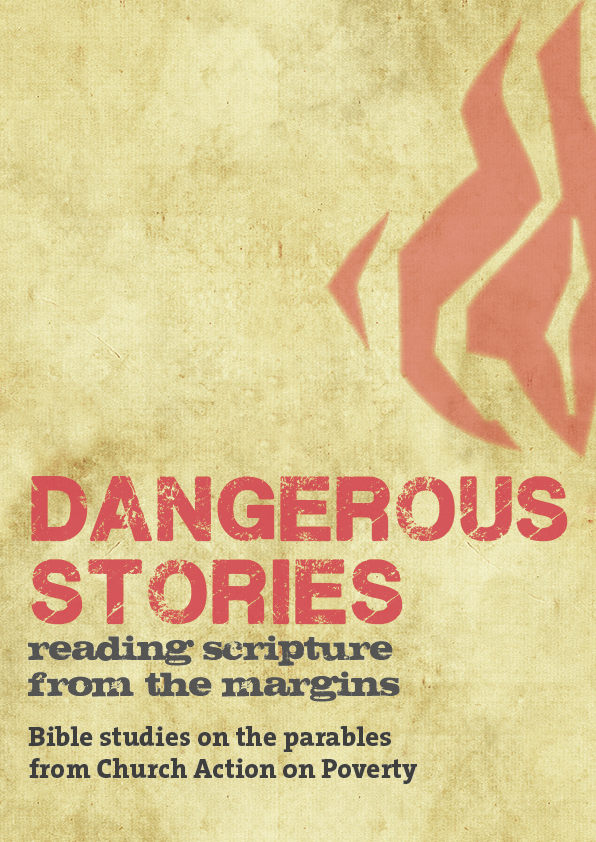
We exposed the scale of cuts to localised crisis support in England. When people are swept into poverty, there must be lifelines to reach for, but most have been removed or neglected.
We launched our Scripture from the Margins Bible studies, helping churches and church-goers to think more deeply about, and respond more effectively to, poverty and injustice.
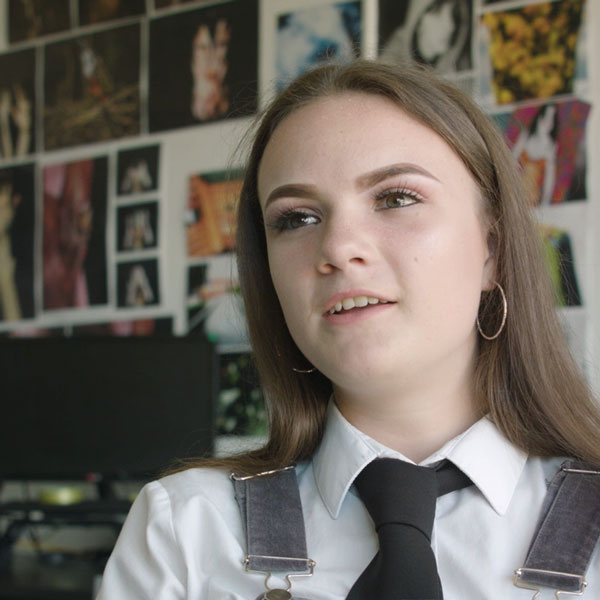
Our Food Power programme shifted the narrative around food and poverty, and helped strengthen local campaigning. Young people we worked with in Lancashire appeared on national TV and spoke truth to power, when they met politicians and took part in the national Children’s Future Food Inquiry.
Hundreds of people embraced a week of action in October, calling on the Government to Act Now To End UK Hunger.

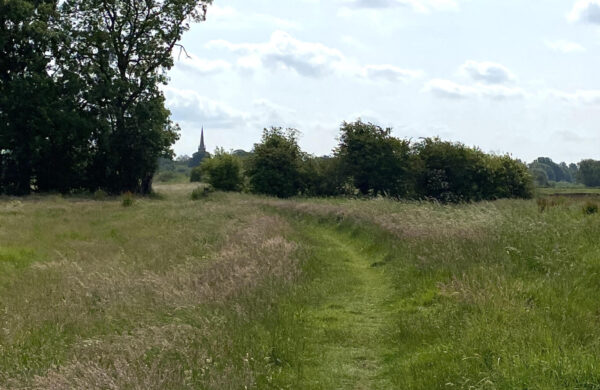
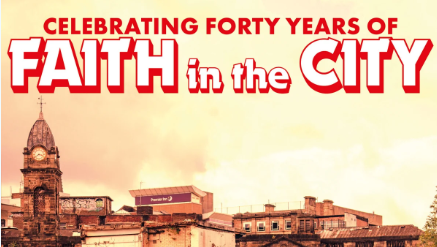
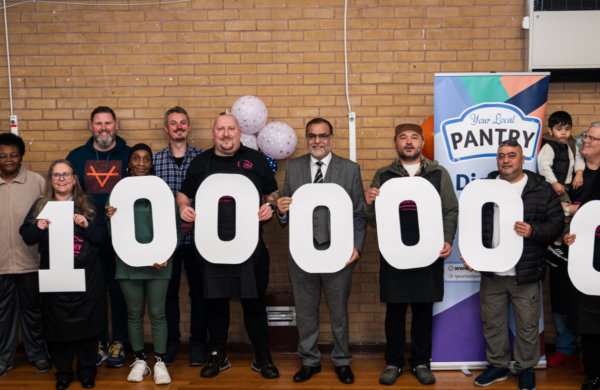
Biblically we are taught that our mark as Christians is “whatever we do to for the least” If Christians could take this forward into the new decade what a change we could make. Politicians respond to public opinion and if several million Christians were to speak and act for the least we could at last begin see a society based on Kingdom values.